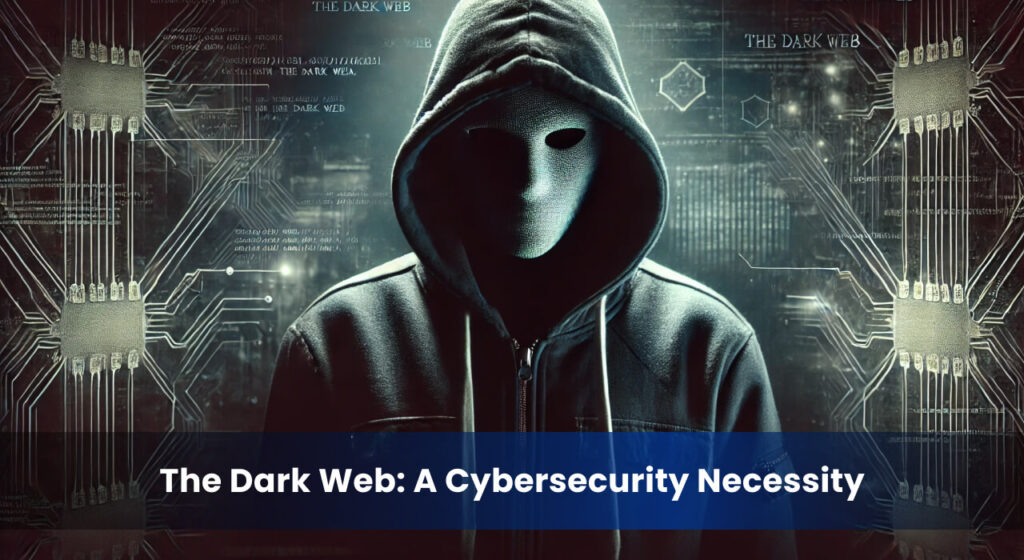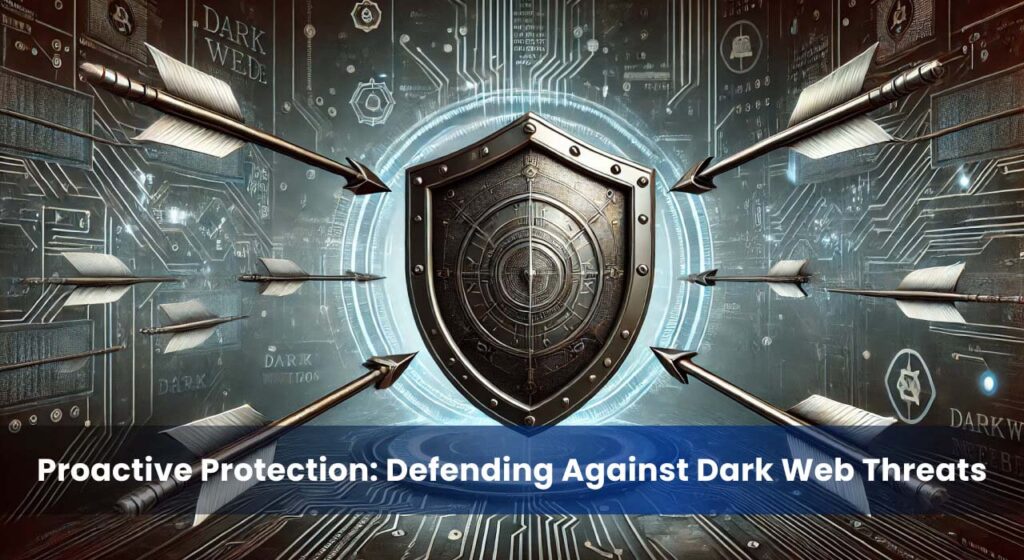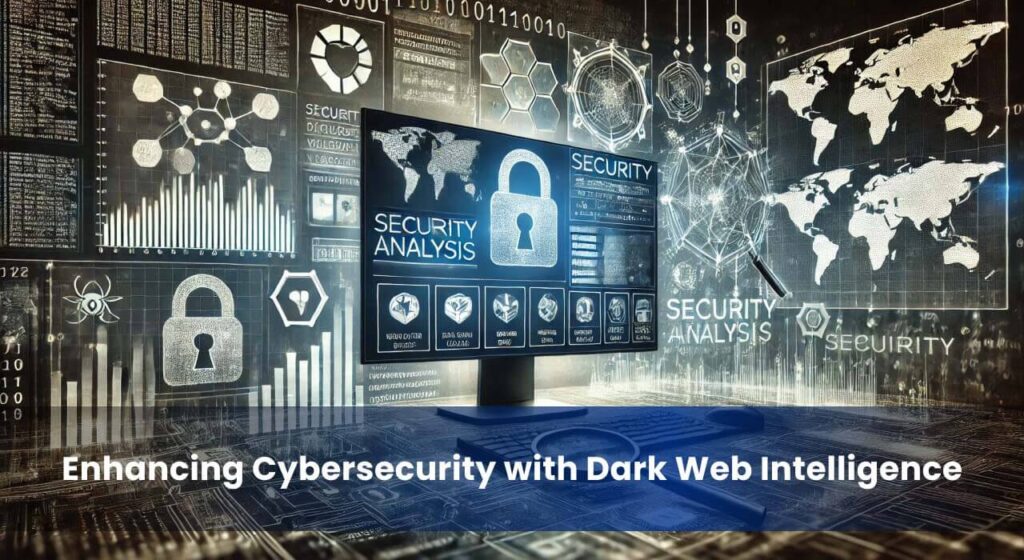
The rapid digitization of industries in the UAE has brought cybersecurity to the forefront of business priorities. With businesses increasingly relying on digital platforms, the exposure to cyber threats has grown significantly. In particular, small and medium-sized enterprises (SMEs) in the UAE face mounting risks, as many lack the comprehensive security infrastructure of larger organizations. According to a report by the Telecommunications and Digital Government Regulatory Authority (TDRA), cyberattacks in the UAE surged by 200% in recent years, with small businesses being a primary target due to their perceived vulnerabilities.
A growing concern for businesses is the dark web, an unregulated space where cybercriminals trade stolen data, including personal information, corporate credentials, and intellectual property. For UAE businesses, the dark web poses a unique challenge, as it allows cyber threats to remain hidden until a breach occurs. Without robust cybersecurity measures, many companies risk significant financial losses, reputational damage, and potential legal consequences.
In light of these evolving threats, cybersecurity for businesses in the UAE, particularly SMEs, is no longer optional. Effective cybersecurity strategies must include proactive monitoring, such as dark web intelligence, to identify and mitigate threats before they escalate into full-scale attacks. As cybercrime evolves, so too must the defense mechanisms businesses employ to safeguard their operations.
Understanding Dark Web Intelligence

Dark Web Intelligence refers to the process of gathering and analyzing information from the dark web, a hidden part of the internet where illicit activities such as data breaches, identity theft, and the sale of stolen credentials often occur. Unlike the surface web, which is indexed and accessible through standard search engines, the dark web operates through encrypted networks, making it difficult to monitor. However, specialized cybersecurity tools enable businesses to conduct a comprehensive cybersecurity risk assessment by detecting threats that may be targeting their systems.
Information is gathered from various sources within the dark web, including forums, marketplaces, and private communication channels where cybercriminals exchange sensitive data. Once gathered, this data is analyzed to identify relevant threats, such as exposed employee credentials or leaked intellectual property. Through this process, actionable insights can be developed to protect businesses from potential breaches, allowing for more informed cybersecurity assessments.
For small businesses, the threat landscape is especially concerning. Without proper monitoring of the dark web, these companies remain vulnerable to attacks that often go unnoticed until significant damage has occurred. Integrating dark web intelligence into cybersecurity strategies is crucial, as it provides early warning signs of potential risks, helping businesses take preemptive action.
To visualize how this intelligence is processed, businesses can utilize flowcharts depicting the journey from the dark web to actionable intelligence reports. These flowcharts typically demonstrate how raw data is collected, filtered, analyzed, and finally presented to decision-makers for risk mitigation.
The Role of Dark Web Intelligence in Cyber Threat Prevention

Dark Web Intelligence plays a critical role in helping UAE businesses mitigate cybersecurity threats by providing early detection of stolen data and potential breaches. Through continuous monitoring of dark web activities, businesses can identify if their sensitive information such as employee credentials, customer data, or proprietary technology—has been exposed. This proactive approach is vital for small businesses, which are often targeted due to their limited cybersecurity defenses.
For example, a report by cybersecurity firm Carbon Black revealed that over 70% of surveyed businesses had experienced data breaches originating from the dark web. These breaches included the sale of stolen employee login credentials, which allowed cybercriminals to infiltrate corporate networks undetected. In one notable case, a UAE-based SME discovered through a dark web scan that their customer database had been compromised and was being sold on an illicit marketplace. This early warning enabled the company to swiftly update its security measures and notify affected customers, preventing further damage.
Dark Web Intelligence not only helps businesses prevent data breaches but also empowers them to respond quickly to emerging threats. By gathering intelligence on hacker forums, phishing kits, and malware exchanges, companies can better prepare for top cybersecurity threats to small businesses, such as credential stuffing, ransomware, and phishing attacks. This information enables businesses to strengthen their security posture and patch vulnerabilities before they are exploited.
Cybersecurity Services & Solutions for Businesses in the UAE
Small businesses in the UAE face increasing cyber threats, often lacking the robust defenses of larger organizations. However, a range of tailored cybersecurity services for small businesses is now available to address these challenges. Traditional cybersecurity measures, such as firewalls, antivirus software, and intrusion detection systems, remain foundational for protecting small businesses. However, these approaches alone are no longer sufficient in combating sophisticated threats originating from the dark web.
Dark web monitoring has become an essential enhancement to traditional cybersecurity. This service continuously scans the dark web for leaked credentials, stolen data, and potential vulnerabilities, alerting businesses to risks that may be otherwise undetectable. By incorporating dark web intelligence, small businesses can preemptively address security threats before they escalate into full-scale breaches.
Several cybersecurity providers in the UAE, including Help AG and DarkMatter, offer comprehensive packages designed specifically for small businesses. These packages typically combine traditional solutions with advanced features like dark web scanning, threat intelligence reports, and real-time monitoring.
To highlight the differences between traditional cybersecurity services and dark web intelligence-driven solutions, the table below provides a clear comparison:
| Aspect | Traditional Cybersecurity Services | Dark Web Intelligence-Driven Services |
|---|---|---|
| Protection Scope | Focus on network security (firewalls, antivirus) | Extends to external threats from the dark web |
| Proactivity | Reactive; addresses known threats once detected | Proactive; detects hidden threats from dark web activities |
| Data Monitoring | Monitors internal data and systems | Monitors external data breaches and leaked credentials |
| Threat Detection | Limited to network intrusions and malware | Detects credential leaks, stolen data, and potential ransomware threats |
| Response Time | Delayed; only responds to identified network incidents | Early warning system; addresses risks before a breach occurs |
Dark web intelligence enhances the best cybersecurity for small businesses by providing timely alerts, allowing businesses to take swift action.
By choosing the best cybersecurity solution for small businesses that incorporates dark web monitoring, companies in the UAE can strengthen their defenses against increasingly complex cyber threats, ensuring greater protection for their data, operations, and customers.
Conducting a Security Gap Analysis with Dark Web Insights

A security gap analysis is crucial for identifying vulnerabilities in an organization’s security posture. By thoroughly assessing existing defenses against potential threats, businesses can pinpoint weaknesses and implement necessary improvements. For small businesses, conducting a security gap assessment is especially vital, as they often lack the comprehensive cybersecurity measures of larger enterprises. This proactive step helps mitigate risks before they can be exploited by cybercriminals.
Incorporating dark web intelligence into the security gap analysis offers unique advantages. Dark web monitoring identifies previously unknown risks by scanning for stolen credentials, exposed intellectual property, or company-specific data being traded in underground marketplaces. These insights enable businesses to address security gaps that would otherwise go unnoticed in traditional assessments. For example, a gap analysis that includes dark web data might uncover compromised employee login details, which can then be promptly addressed by strengthening authentication methods.
To enhance the effectiveness of a gap analysis in cybersecurity, businesses should regularly incorporate dark web scans alongside internal assessments. This combination provides a more comprehensive understanding of external threats and allows for faster remediation of security gaps. Implementing these strategies will better equip businesses to defend against the constantly evolving landscape of cyber threats.
This holistic approach ensures that businesses are aware of both internal vulnerabilities and external risks posed by the dark web, ultimately leading to stronger and more resilient security measures.
For a deeper dive into conducting a thorough security gap assessment and identifying vulnerabilities within your small business, explore our companion article: “Developing a Cybersecurity Mindset: Training and Tools for Small Business Teams”
Legal and Regulatory Considerations for UAE Businesses

Cybersecurity regulations in the UAE are continually evolving to address growing cyber threats, especially for businesses of all sizes. The UAE has enacted stringent laws to protect sensitive information and combat cybercrime. One key regulation is the UAE Cybercrimes Law (Federal Law No. 5 of 2012, as amended by Federal Law No. 12 of 2016), which outlines penalties for cyber offenses, including data breaches and unauthorized access to information. Additionally, the UAE’s National Cybersecurity Strategy mandates that businesses follow best practices to secure their data and mitigate cyber risks.
For small businesses, complying with these regulations is essential to avoid legal penalties and maintain customer trust. Dark Web Intelligence plays a vital role in helping businesses meet these regulatory requirements by providing early detection of compromised credentials, leaked intellectual property, and other sensitive data exposed on the dark web. This proactive approach ensures businesses can address potential vulnerabilities before they lead to non-compliance with cybersecurity laws.
By regularly conducting cybersecurity risk assessments and integrating dark web monitoring, businesses can ensure they comply with relevant regulations, such as data protection laws. For instance, in cases where a breach has occurred, the early identification of stolen data can significantly reduce legal liabilities and enable faster response times.
For more information on the UAE’s cybersecurity laws, businesses can refer to the official UAE government website on Cybercrime Law (CloudSEK | Predicting Cyber Threats).
Incorporating Dark Web Intelligence into a cybersecurity strategy offers UAE businesses a proactive means of detecting potential threats before they escalate. By conducting regular cybersecurity risk assessments that include dark web scans, companies can identify compromised data, mitigate vulnerabilities, and protect their critical assets. For small and medium-sized businesses, this approach is essential to staying ahead of cybercriminals and maintaining compliance with evolving cybersecurity regulations.
UAE businesses are encouraged to take advantage of free cybersecurity resources available and invest in ongoing dark web monitoring to safeguard their operations. Regular assessments will not only enhance security but also provide peace of mind, ensuring that any potential threats are addressed swiftly and effectively.
Take the Next Step: Protect your business from emerging cyber threats with comprehensive dark web monitoring. Visit Cybernod today to learn more about our services and how we can help you.
Categorized in:
Comments